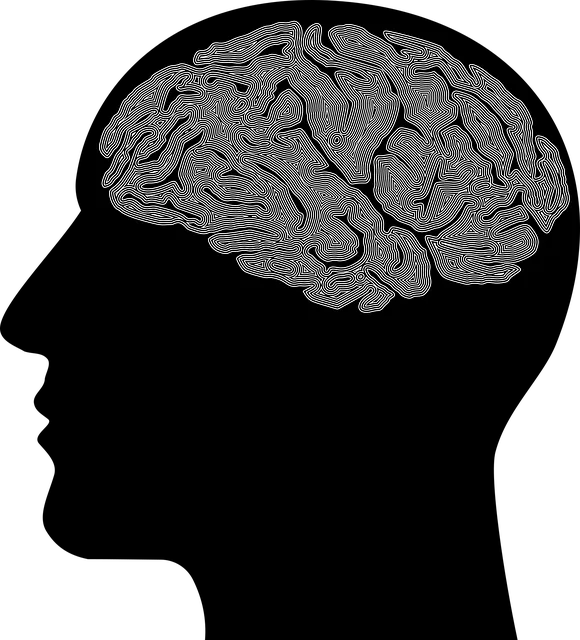The Boulder Kaiser Permanente mental health center offers specialized Social Skills Training programs tailored for individuals with mental health conditions, focusing on communication, assertiveness, and emotional regulation. Through interactive workshops and group discussions, participants learn practical strategies to navigate social situations confidently, fostering a sense of belonging and enhancing overall mental wellness. The center prioritizes holistic care, combining evidence-based practices with a supportive environment to empower patients in managing their mental health effectively in daily life.
Social skills training plays a pivotal role in enhancing mental well-being, particularly for individuals managing various conditions. This article explores how structured programs can foster connection and improve outcomes, focusing on the innovative approaches at the Boulder Kaiser Permanente Mental Health Center. We’ll delve into identifying specific challenges, designing effective training tailored to conditions like anxiety and depression, and measure success through implementation strategies employed by this leading healthcare provider.
- Understanding Social Skills Training: Its Role in Mental Health Support
- The Boulder Kaiser Permanente Mental Health Center: A Hub for Comprehensive Care
- Identifying Target Areas: Common Mental Health Conditions and Social Challenges
- Designing Effective Training Programs: Strategies and Techniques
- Implementation and Continuous Improvement: Measuring Success and Adapting Programs
Understanding Social Skills Training: Its Role in Mental Health Support

Social Skills Training is a specialized program designed to empower individuals with mental health conditions by enhancing their ability to interact and connect with others. At the Boulder Kaiser Permanente mental health center, we recognize that social interactions can significantly impact one’s overall mental wellness. Our Social Skills Training focuses on teaching practical strategies to navigate social situations confidently. This approach is particularly beneficial for those struggling with anxiety, depression, or other conditions that may affect their social functioning.
Through interactive workshops and group discussions, participants learn effective communication techniques, assertiveness training, and emotional regulation skills tailored to their unique needs. The goal is not just to improve social interactions but also to foster a sense of belonging and enhance overall mental wellness. With the support of our experienced facilitators, individuals can build confidence in social settings, leading to improved relationships and a higher quality of life—all essential components of the Mental Wellness Podcast Series Production and Mental Wellness Coaching Programs Development offered at Kaiser Permanente.
The Boulder Kaiser Permanente Mental Health Center: A Hub for Comprehensive Care

The Boulder Kaiser Permanente Mental Health Center stands as a beacon of comprehensive care, dedicated to addressing various mental health needs. This hub offers a wide array of services, from individual therapy sessions to specialized groups designed to tackle specific challenges. The center’s approach is holistic, focusing not just on treating symptoms but on empowering individuals with the tools needed for long-term well-being.
One notable aspect of Boulder Kaiser Permanente’s program is its emphasis on teaching practical skills, such as conflict resolution techniques and stress management strategies. These sessions are tailored to help patients navigate social interactions more effectively, reduce anxiety, and foster healthier relationships. By combining evidence-based practices with a supportive environment, the center ensures that individuals leave equipped with valuable resources for managing their mental health in daily life.
Identifying Target Areas: Common Mental Health Conditions and Social Challenges

Mental health conditions often present with unique social challenges that can significantly impact an individual’s daily life and interactions. At the Boulder Kaiser Permanente mental health center, professionals recognize the importance of addressing these social skills gaps to foster meaningful connections and overall well-being. Common mental health concerns, such as anxiety disorders, depression, and bipolar disorder, frequently manifest in social settings, hindering individuals’ abilities to engage in effective communication and build relationships.
Identifying target areas is crucial for tailored interventions. For instance, individuals with anxiety may struggle with initiating conversations or maintaining eye contact, while those dealing with depression might exhibit a lack of interest in social activities. The Kaiser Permanente center offers specialized programs focusing on communication strategies, emotional regulation techniques, and stress management workshops designed to empower patients with the tools they need to navigate these challenges. These initiatives aim to enhance social interactions, promote self-confidence, and ultimately, create a more supportive environment for individuals managing mental health conditions.
Designing Effective Training Programs: Strategies and Techniques

Designing Effective Training Programs for social skills development is paramount when addressing mental health conditions at a center like Boulder Kaiser Permanente mental health center. Customized programs that cater to specific needs are crucial. Therapists can employ evidence-based strategies such as role-playing scenarios, group discussions, and structured activities to foster healthy communication patterns. Encouraging active listening, empathy, and assertive communication among participants can significantly enhance their ability to navigate social interactions with confidence.
Incorporating techniques like Mindfulness Meditation into training routines has proven beneficial. It helps individuals stay present in conversations, improve focus, and manage emotional responses during social exchanges. Additionally, Public Awareness Campaigns Development can educate the broader community about mental health challenges, breaking down stereotypes and fostering a supportive environment for those with conditions that impact social interactions.
Implementation and Continuous Improvement: Measuring Success and Adapting Programs

The journey toward enhancing social skills for individuals with mental health conditions is an ongoing process that requires careful implementation and continuous improvement. At the Boulder Kaiser Permanente mental health center, we recognize that measuring success goes beyond mere attendance; it involves assessing tangible improvements in participants’ daily lives. This may include enhanced self-care practices, better stress management techniques, and increased resilience when navigating social situations.
To adapt our programs effectively, we employ a data-driven approach, closely monitoring participant progress and feedback. By collecting qualitative and quantitative insights, we can tailor interventions to meet the unique needs of each individual. This ensures that the training remains relevant, engaging, and ultimately successful in fostering meaningful connections and improved mental well-being among our community members.
Social skills training plays a pivotal role in supporting individuals with mental health conditions, as evidenced by the comprehensive programs offered at the Boulder Kaiser Permanente Mental Health Center. By targeting specific areas of challenge, such as anxiety and social withdrawal, these initiatives enhance overall well-being. Through strategic program design and continuous improvement, the center ensures that its interventions are effective and tailored to individual needs. This approach not only improves social interactions but also fosters a sense of community, ultimately contributing to the successful management of mental health conditions.






